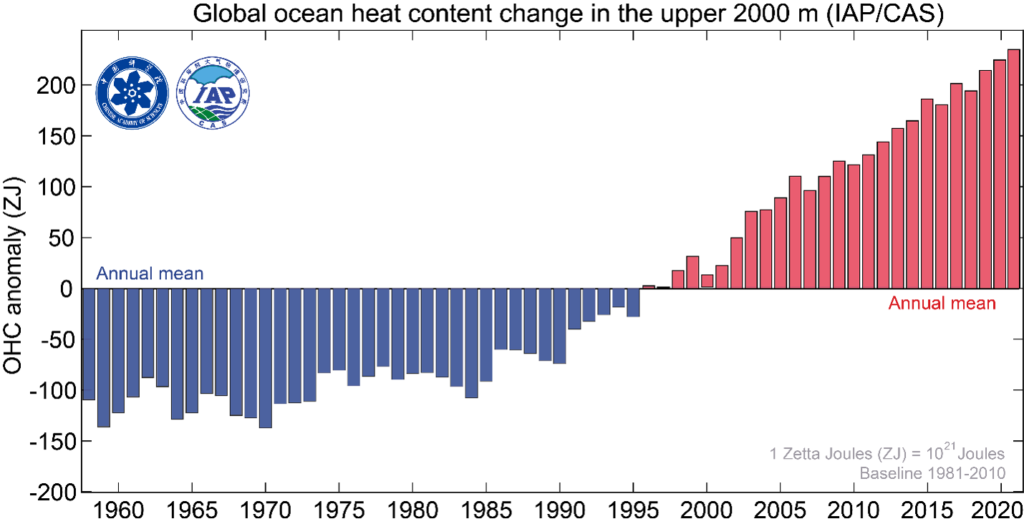Earth broke yet another heat record last year. For the sixth straight year, joint research by University of St. Thomas Professor of Engineering John Abraham and 23 scientists from around the world revealed that, per their measurements, the world’s oceans are hotter than ever recorded.
“The Earth is warming and humans are the culprit,” Abraham said. “The warming will continue indefinitely until we collectively take action to reduce greenhouse gas emissions.”
The Earth’s temperature is dictated by ocean temperatures. Just how much more the world’s oceans warmed in 2021 compared to the previous year is beyond what most can imagine.

Scientifically, the data shows that the oceans heated up by about 14 zettajoules. A zettajoule is 1,000,000,000,000,000,000,000 joules of energy. In 2021, the researchers found that the upper 2,000 meters in the world’s oceans absorbed 14 more Zettajoules than in 2020, equal to 145 times world electricity generation. For context, all of the energy humans use the world over in a single year is about half of a Zettajoule.
The researchers measured the oceans because they are absorbing the vast majority of the heat associated with global warming. In fact, more than 90% of global warming heat ends up in the oceans.
“I like to say that global warming is really ocean warming,” Abraham said. “If you want to know how fast climate change is happening, the answer is in the oceans.”
The oceans are absorbing most of the heating from human carbon emissions. The researchers discovered, however, that the temperatures are not rising uniformly across the planet. They found that the fastest warming is in the Atlantic, Indian, and Northern Pacific Oceans.
“Using climate model simulations, we directly tie various features of the ocean to human emissions of industrial pollution and greenhouse gases,” Abraham said.
The largest source of greenhouse gas emissions from human activities in the United States is from burning fossil fuels for electricity, heat and transportation, according to the U.S. Environmental Protection Agency.
The University of St. Thomas is committed to reducing its carbon footprint. Heeding recent calls from the Catholic Church for faith-based institutions to fight a growing ecological crisis, the university implemented a five-year strategic plan to achieve carbon neutrality by 2035.
The university’s plan includes divestment from public securities of any company whose primary business is exploring or extracting fossil fuels such as coal, oil and natural gas. It will also divest from similar private company investments in the next 10 years, while not making any new investments in fossil fuel companies.

Abraham said that he is proud to work at a university that “embraces the clear science of climate change and the obligation to work toward solutions – from reducing on-campus emissions, to training students to be forces of change in the future.”
While climate change certainly is a problem, there is also tremendous opportunity to create high-paying jobs in the clean energy sector, he said. “The future economies of the world will be built on clean energy technology. St. Thomas is playing an important role positioning our students and our nation to lead in this space.”
For individuals, solutions to reduce our carbon footprint are as simple as turning out lights when leaving a room, to commuting via bus or bike, or driving electric vehicles.
“My New Year’s resolution is – help the planet cool down, it’s getting hot in here and there is no sign things are going to change anytime soon,” Abraham said. “Collectively, we certainly have the technology to reduce greenhouse gases, but we have never really shown the will.”







